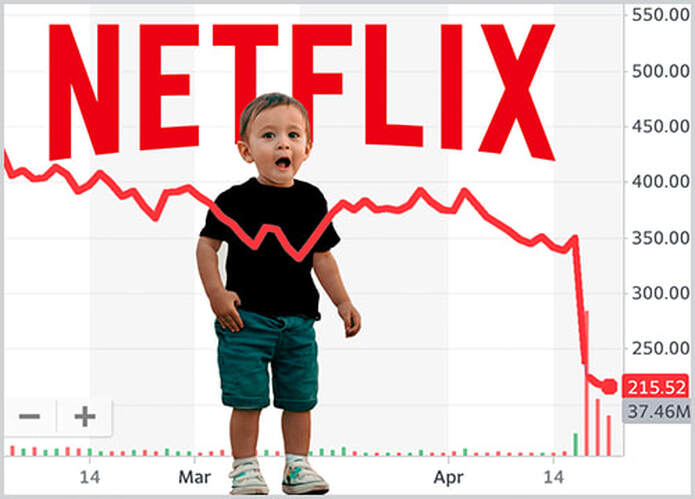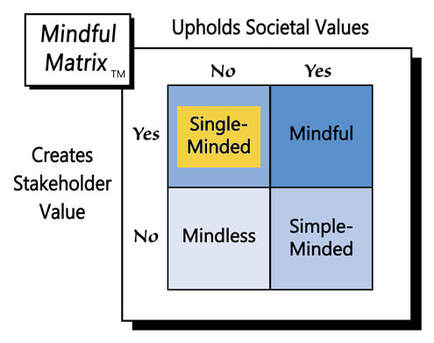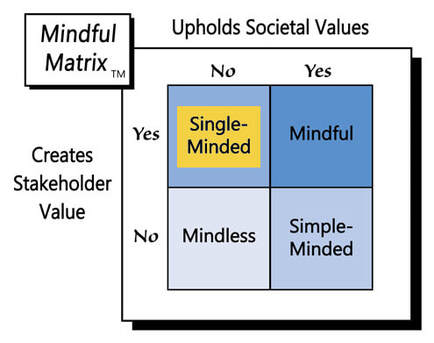author of Honorable Influence - founder of Mindful Marketing
From ‘Stanger Things,’ to ‘Bridgrton,’ to ‘Squid Game,’ tastes for Netflix series change like the seasons. Now, one of the streaming giant’s popular properties is an unlikely reality series that comes courtesy of East Asia and the 1990s.
‘Old Enough!’ is a documentary-style television program in which Japanese parents send their toddlers on their first independent errands. Camera crews capture the highly cute and often humorous action, while witty narration added in editing gives viewers a window into what the tots may have been thinking at the time of their adventures.
In light of today’s often hovering helicopter parents, it’s refreshing to see young people given real responsibilities and freedom to act independently. However, it’s also kind of unnerving to watch a kid, who’s still wearing diapers, wander by himself more than a half mile to a grocery store to pick up ingredients for dinner.
In terms of social skills, these parents are placing their children far ahead on the developmental curve. Given what these kids are doing under age four, there’s no telling what they’ll be capable of by the time they’re 10 or 20 . . . if they live that long!
In terms of safety, there’s likely little danger to the children. Camera crews are filming them the entire time, so in some sense they’re safer during shooting than they may be any other day. However, no camera operator could intervene in time if a three-year-old suddenly skipped off the sidewalk, into the path of a moving vehicle.
Another issue to consider any time children are placed in media roles is informed consent. How can a child under the age of five possibly understand what they’re doing: the risks they’re incurring at the time and the implications their ‘celebrity’ may bring in the future? Most fathers and mothers pursue their children’s best interest; yet there are always unfortunate cases in which parents become blinded by their offspring’s potential popularity and prosperity and intentionally place them in harm’s way.
This potential may be even more of a concern in today’s social media infatuated society. Now any parent with a smartphone can capture their child doing ‘something special’ and broadcast the clips or stills to anyone in the world.
All the above are real moral concerns; however, it’s hard to paint ‘Old Enough!’ as irresponsible entertainment. Most parents who aggressively promote and profit from their children probably have never seen the show. Also, given the series’ longevity and apparent track record of ‘safe success,’ the show seems like acceptable diversion.
So, back to the second question posed at the outset of this piece: Why have so many Americans suddenly been smitten by a decade-old Japanese documentary featuring toddlers running errands? ‘Seinfeld’s George Costanza’s gave a reason for watching ‘a show about nothing’ that may help answer the question: “because it’s on TV.”
Of course, there’s sarcasm in that answer, but there’s also truth. Although the increasingly competitive streaming market is saturated with shows, after spending 18 months or more homebound in a pandemic, many people feel they’ve already seen everything worth watching on Netflix, which has left the company scrambling for new content—scouring space and time for entertainment that will keep people from unsubscribing.
Speaking of subscriptions, during the first quarter of 2022, Netflix lost 200,000 subscribers and even more staggering, it expects to lose 2 million more by July—an announcement that has precipitated a decline in the company’s stock price of more than 30%.
During video rental era and in the early years of streaming, competitors had largely the same video libraries, so cost and convenience were key to attracting customers. Now content is the most important differentiator, as evidenced by the rapid rise of relatively new competitor Disney+, which has ridden the popularity of proprietary shows like ‘The Mandalorian,’ ‘The Beatles: Get Back,’ and a long list of Disney movies.
Netflix needs original content. Over the past five-to-seven years, it’s certainly had success creating content, but subscribers burned through that content with a flurry of pandemic-prompted binge-watching. Creating compelling original content takes considerable time, money, and expertise, but even then, there are no guarantees it will be well-received.
These reasons are likely why Netflix acquired the streaming rights for ‘Old Enough!’—a show the company could make available immediately to a subscriber base that, by and large, had never seen it, but would find it at least a little entertaining, since reality TV still resonates and people like cute kids.
Netflix also probably didn’t overpay for those rights. True to the show’s name, the 20 episodes now on Netflix were produced in 2013, nearly a decade ago, giving ‘Old Enough!’ a double meaning and likely meaning that the series was a bargain. Unfortunately, inexpensive does not necessarily mean good.
My wife and I are not representative of all Netflix subscribers, but after watching three episodes of the grocery-toting toddlers, we had our fill. The children were cute, and the scenarios were kind of funny, but reading the subtitles made the entertainment feel a little like work. Even though a fourth episode promised a different kid in a unique situation, it didn’t seem like we’d really see anything new.
Perhaps ‘Old Enough!’ has outperformed Netflix executives’ expectations. Still, the show can’t be more than a bandage on the company’s expanding wound of subscriber attrition, which will only be healed by a more drastic strategic prescription.
Interestingly, Netflix is now looking to incorporate advertising. Such sponsorships could help contain, if not lower, the cost of the platform; however, people won’t stay subscribed just because rates don’t rise, any more than they'll watch shows ‘just because they’re on TV.’ Subscribers of any streaming service must believe there’s enough new, engaging content to warrant whatever amount they’re paying.
There are no serious moral concerns over a show about toddlers ‘doing nothing,’ but there’s also little economic upside for a streaming giant that desperately needs more compelling original content. For these reasons, Netflix’s ‘Old Enough!’ is good enough to be “Simple-Minded Marketing.”
Learn more about the Mindful Matrix.
Check out Mindful Marketing Ads and Vote your Mind!







 RSS Feed
RSS Feed